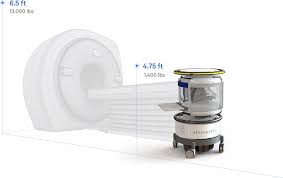
Breaking News
 Christmas Truce of 1914, World War I - For Sharing, For Peace
Christmas Truce of 1914, World War I - For Sharing, For Peace
 The Roots of Collectivist Thinking
The Roots of Collectivist Thinking
 What Would Happen if a Major Bank Collapsed Tomorrow?
What Would Happen if a Major Bank Collapsed Tomorrow?
Top Tech News
 EngineAI T800: Born to Disrupt! #EngineAI #robotics #newtechnology #newproduct
EngineAI T800: Born to Disrupt! #EngineAI #robotics #newtechnology #newproduct
 This Silicon Anode Breakthrough Could Mark A Turning Point For EV Batteries [Update]
This Silicon Anode Breakthrough Could Mark A Turning Point For EV Batteries [Update]
 Travel gadget promises to dry and iron your clothes – totally hands-free
Travel gadget promises to dry and iron your clothes – totally hands-free
 Perfect Aircrete, Kitchen Ingredients.
Perfect Aircrete, Kitchen Ingredients.
 Futuristic pixel-raising display lets you feel what's onscreen
Futuristic pixel-raising display lets you feel what's onscreen
 Cutting-Edge Facility Generates Pure Water and Hydrogen Fuel from Seawater for Mere Pennies
Cutting-Edge Facility Generates Pure Water and Hydrogen Fuel from Seawater for Mere Pennies
 This tiny dev board is packed with features for ambitious makers
This tiny dev board is packed with features for ambitious makers
 Scientists Discover Gel to Regrow Tooth Enamel
Scientists Discover Gel to Regrow Tooth Enamel
 Vitamin C and Dandelion Root Killing Cancer Cells -- as Former CDC Director Calls for COVID-19...
Vitamin C and Dandelion Root Killing Cancer Cells -- as Former CDC Director Calls for COVID-19...
 Galactic Brain: US firm plans space-based data centers, power grid to challenge China
Galactic Brain: US firm plans space-based data centers, power grid to challenge China
World's first mobile MRI machine detects strokes that require surgery

This world-first portable MRI machine proved its potential in early trials, and a new Yale-led study has built on this success by using it to detect cases of stroke in need of surgical intervention, with a high degree of accuracy.
Dubbed the Portable Point-of-Care MRI system, the machine is the handiwork of healthcare technology company Hyperfine, and was developed as a mobile alternative to large and expensive MRI machines that require custom-built rooms for their powerful magnetic fields. In essence, Hyperfine's MRI solution harnesses advances in computing power to dial down the size of magnets required, packing them into a machine that is 10 times lighter, 20 times less costly and uses 35 times less power than current MRI machines.

 The State's Last Stand
The State's Last Stand


